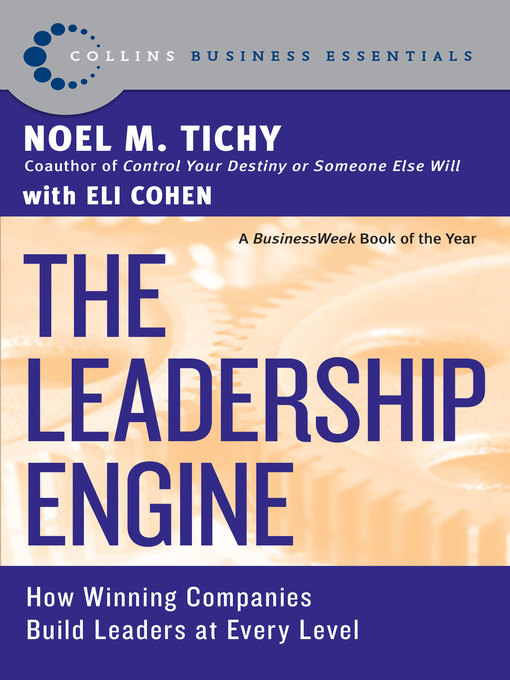
The Leadership Engine
How Winning Companies Build Leaders at Every Level
کتاب های مرتبط
- اطلاعات
- نقد و بررسی
- دیدگاه کاربران
نقد و بررسی

September 1, 2002
"There is a multibillion-dollar consulting industry in the world today," Tichy notes (in this reprint of his 1997 BusinessWeek Book of the Year, written with freelancer Cohen) "that thrives largely on the fact that most managers don't want to lead." It's an insight Tichy (Control Your Destiny Or Someone Else Will), a professor at the Univ. of Michigan School of Business, has observed firsthand when trying to determine why some companies succeed and others fail or just limp along. His conclusion: the winners have "good leaders who nurture the development of other leaders at all levels of the organization." These leaders urge their workers to see reality and mobilize the appropriate responses. Repeatedly, the authors single out the heads of successful companies such as General Electric and Allied Signal to discuss how much time their chief executives spend "formally and informally" on teaching. They conclude that those firms' success is a direct result of everyone's pulling in the same direction. The book's argument ignores small entrepreneurial companies where a product innovation, speed to market or customer service can make all the difference. But in discussing large companies, the book is on the money.

December 30, 1996
"There is a multibillion-dollar consulting industry in the world today," Tichy notes in his provocative new book, written with freelancer Cohen, "that thrives largely on the fact that most managers don't want to lead." It's an insight Tichy, a professor at the Univ. of Michigan School of Business and a consultant, has observed firsthand when trying to determine why some companies succeed, while others fail or just limp along. His conclusion: the winners have "good leaders who nurture the development of other leaders at all levels of the organization." These leaders urge their workers to see reality and mobilize the appropriate responses. Repeatedly, the authors single out the heads of successful companies such as General Electric and Allied Signal to discuss how much time their chief executives spend--formally and informally--on teaching. They conclude that those firms' success is a direct result of everyone's pulling in the same direction. The book's argument ignores small entrepreneurial companies where a product innovation, speed to market or customer service can make all the difference. But in discussing large companies, the book is on the money.

September 1, 2002
"There is a multibillion-dollar consulting industry in the world today," Tichy notes (in this reprint of his 1997 BusinessWeek Book of the Year, written with freelancer Cohen) "that thrives largely on the fact that most managers don't want to lead." It's an insight Tichy (Control Your Destiny Or Someone Else Will), a professor at the Univ. of Michigan School of Business, has observed firsthand when trying to determine why some companies succeed and others fail or just limp along. His conclusion: the winners have "good leaders who nurture the development of other leaders at all levels of the organization." These leaders urge their workers to see reality and mobilize the appropriate responses. Repeatedly, the authors single out the heads of successful companies such as General Electric and Allied Signal to discuss how much time their chief executives spend "formally and informally" on teaching. They conclude that those firms' success is a direct result of everyone's pulling in the same direction. The book's argument ignores small entrepreneurial companies where a product innovation, speed to market or customer service can make all the difference. But in discussing large companies, the book is on the money.
Copyright 2002 Library Journal, LLC Used with permission.

























دیدگاه کاربران